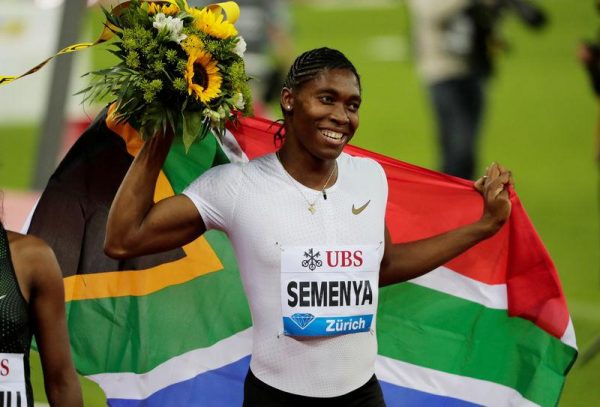Lord Sebastian Coe, president of the International Association of Athletics Federation, has insisted that the association’s female eligibility regulations, which finally came into effect in May, 2019 after several months of delay, are not targeted at a particular athlete, even though Caster Semenya is the first name that comes to mind whenever the highly-controversial and heated issue is being discussed.
As a result of her refusal to comply with the IAAF ruling, which requires athletes with a difference in sexual development to take testosterone-reducing medication, Semenya has been barred from defending her 800m title at this month’s World Athletics Championships in Doha.
The 28-year-old, who is hyperandrogenous and has high levels of testosterone, took it upon herself to go head to head with the world athletics governing body in court, and the high-profile case has seen deliberations going on for months.
Coe told CNN that he has not spoken directly to Caster Semenya regarding this sensitive matter.
He added: “I haven’t because this is not about an individual athlete. It’s not about a particular country. It’s not about a particular continent. I don’t see this as a personal issue. I see this as the right decision and those regulations have been tabled for what I believe are the right reasons.”
In May, the Court of Arbitration for Sport ruled in favour of the IAAF, but Semenya did not relent, taking the case to the Federal Supreme Court of Switzerland, where a final decision is yet to be made.
With the eligibility regulations, the IAAF aims to preserve “the integrity of female athletics in the Restricted Events”.
But this move has split the world in two with one part feeling it goes against human rights.
In June, Semenya, after winning the 2,000m at the Meeting de Montreuil in Paris, said: “I’m not an idiot. Why will I take drugs? I’m a pure athlete. I don’t cheat. They should focus on doping, not us. I’m never going to take drugs.”
When asked if he has any sympathy for Semenya, who has not been convicted of doping but is rather being restricted from competing because of a rare genetic condition which is not of her own making, Coe responded:
“I have clearly a sympathy for the efforts we are trying to make,” said Coe. “I hope she does come back on to the track and I do hope that the athletes with that condition to take the medical direction that allows them to do that.”
Trending
- Man arrested for identifying as retired US military officer in Ondo
- Tinubu felicitates Hon Emeka Ihedioha on 60th birthday
- Two arrested for killing motorcyclist in Bauchi
- NAF air strikes eliminate key terrorists, destroy gun trucks in Borno
- First Lady Oluremi Tinubu calls for global efforts, investment to end tuberculosis
- Police detain three officers for alleged extortion of content creator
- Alleged defamatory remarks: Okpebholo demands apology from two PDP chieftains, threatens lawsuit
- Customs arrest wildlife trafficker with 346 rare bird heads, other specimens


